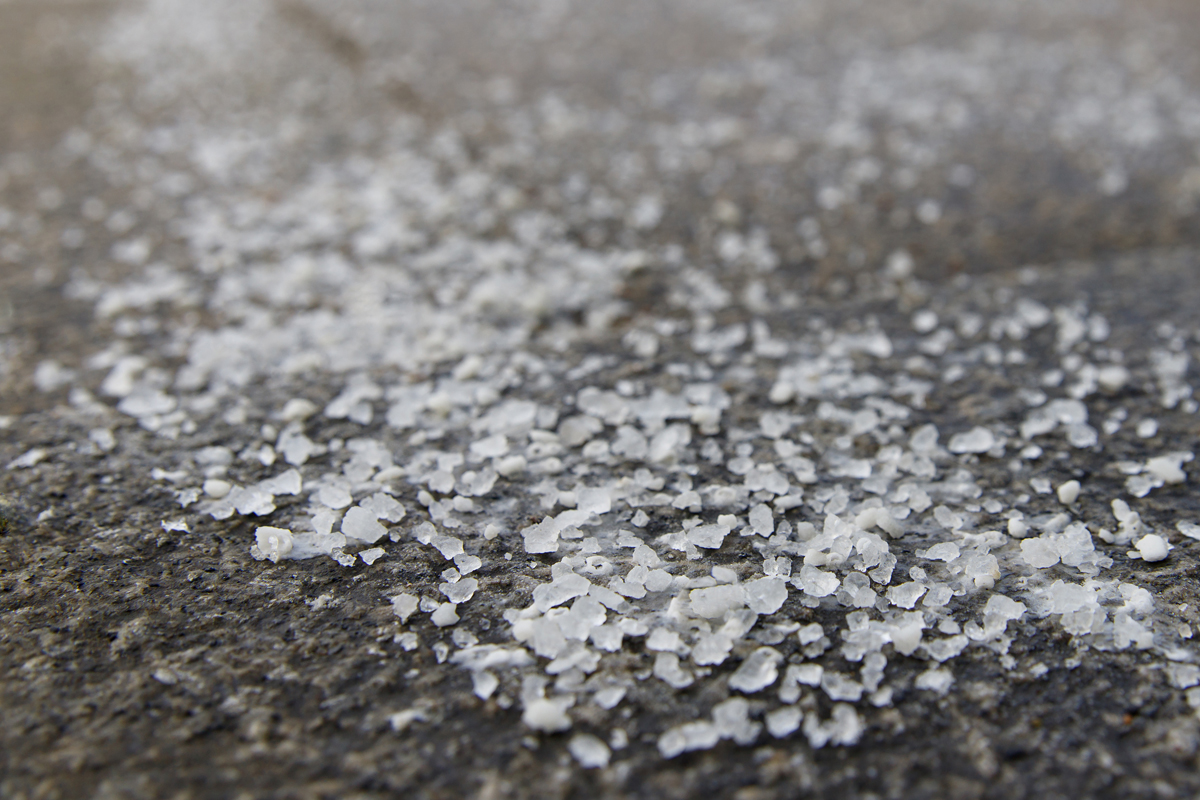Water in Arizona houses is well known to be largely “hard water” with lots of magnesium and calcium minerals. But salt softens water and can improve the quality of water in your home. Read on to learn more!
🌵 Why Salt Matters in Arizona Water
-
Arizona’s water often tests very high on hardness scales, sometimes over 250 ppm (15+ grains per gallon).
-
Hard water causes scale buildup in pipes, water heaters, faucets, and toilets, and it leaves spots on dishes and film on skin/hair.
-
A salt-based water softener helps treat this problem directly.
⚙️ How Salt Works in a Water Softener
-
Ion Exchange Process
-
Inside the softener, resin beads attract and hold calcium and magnesium (hardness minerals).
-
Sodium (or potassium) ions from the salt replace those hardness minerals in the water.
-
-
Regeneration Cycle
-
Over time, the resin beads become saturated with hardness minerals.
-
The salt brine flushes them out, “recharging” the beads so they can keep softening.
-
-
Result
-
The water coming into your home is now “soft”—with greatly reduced mineral content.
-
✅ Benefits for Arizona Homes
-
Protects plumbing & appliances: Prevents scale buildup in water heaters, dishwashers, washing machines, and toilets—extending their lifespan.
-
Cleaner bathrooms & kitchens: No more pink rings from bacteria clinging to mineral deposits, and far fewer soap scum spots on sinks, tubs, and glass.
-
Softer skin & hair: Hard water strips natural oils; softened water feels gentler.
-
Better cleaning efficiency: Soap, shampoo, and detergents lather more and rinse cleaner, actually reducing the amount you have to use for effective results!
-
Lower energy bills: Scale buildup in water heaters reduces efficiency. Soft water keeps them running more efficiently.
⚖️ Things to Consider
-
Salt type matters: Solar salt, evaporated salt pellets, or potassium chloride (for a low-sodium option).
-
Maintenance: You’ll need to refill salt in the brine tank every few weeks to months, depending on water usage.
-
Health: The added sodium is usually minimal (a glass of softened water has less sodium than a slice of bread), but if you’re on a low-sodium diet, potassium chloride is an option.
-
Alternatives: Salt-free “conditioners” exist, but they don’t truly soften water—they just reduce scale adhesion.
👉 In short: Salt doesn’t directly make the water healthier to drink—it makes it friendlier to your home, plumbing, appliances, and skin. In Arizona, with its very hard water, a salt-based softener can make a big difference in comfort and cost savings.
🧂 Best Salt Types for Arizona Water Softeners
1. Solar Salt (Crystals)
-
Made from: Evaporated seawater or brine pools.
-
Form: White crystals, dissolves fairly well.
-
Best for: Homes with moderately hard water and softeners that regenerate often.
-
Arizona note: Works in some parts of AZ, but in areas with very high hardness, solar salt may not dissolve fast enough and this may lead to salt bridges (a hard crust forming in the brine tank).
2. Evaporated Salt Pellets
-
Made from: Mined rock salt, purified, then pressed into pellets.
-
Form: Dense, smooth pellets; dissolve cleanly.
-
Best for: High-hardness water (like Phoenix, Tucson, and much of Arizona).
-
Advantages:
-
Produces less residue in the brine tank.
-
Prevents clogging and bridging better than crystals.
-
-
Arizona note: The most reliable choice for Arizona’s extreme hardness.
3. Potassium Chloride Pellets
-
Made from: Potassium instead of sodium.
-
Form: Pellets, used the same way as salt.
-
Best for: People on low-sodium diets or who want an eco-friendlier option.
-
Advantages:
-
Adds potassium instead of sodium to softened water.
-
Still prevents scale buildup effectively.
-
-
Disadvantages:
-
More expensive (often 2–4× the price of regular salt).
-
Not always stocked at every Arizona hardware store.
-
-
Arizona note: Great option for health- or eco-conscious households, but higher maintenance cost.
4. Rock Salt
-
Made from: Mined salt with impurities.
-
Form: Chunks or coarse crystals.
-
Best for: Emergency use (if other salt types are unavailable).
-
Disadvantages:
-
Leaves sludge and sediment in the tank.
-
More frequent cleaning needed.
-
-
Arizona note: Avoid for long-term use. Arizona water already has an over abundance of minerals
📌 Arizona Homeowner Tips
-
Stick to pellets (evaporated or potassium chloride) for best results.
-
Check your softener manual some units work better with one form over another.
-
Keep the brine tank half full and top off regularly; don’t let it run dry.
-
Clean the tank once a year to prevent bridging and salt sludge.
✅ Recommendation for Arizona:
If you’re in Phoenix, Tucson, or other hard-water hot spots, go with evaporated salt pellets for performance and reliability. If you want a health- or eco-friendly option, switch to potassium chloride pellets, just be prepared for the higher cost.
Salt Works USA In Arizona
At Salt Works we strive to meet the salt delivery needs for the entire Phoenix valley. Proudly serving the great state of Arizona for over 20 years, Salt Works has become a leading provider for salt and water treatment needs by earning the trust of our valued customers. We promise to build on our strong foundation and reputation through exceptional customer service and quality of our products. Contact us today! [/vc_column_text][/vc_column][/vc_row]






